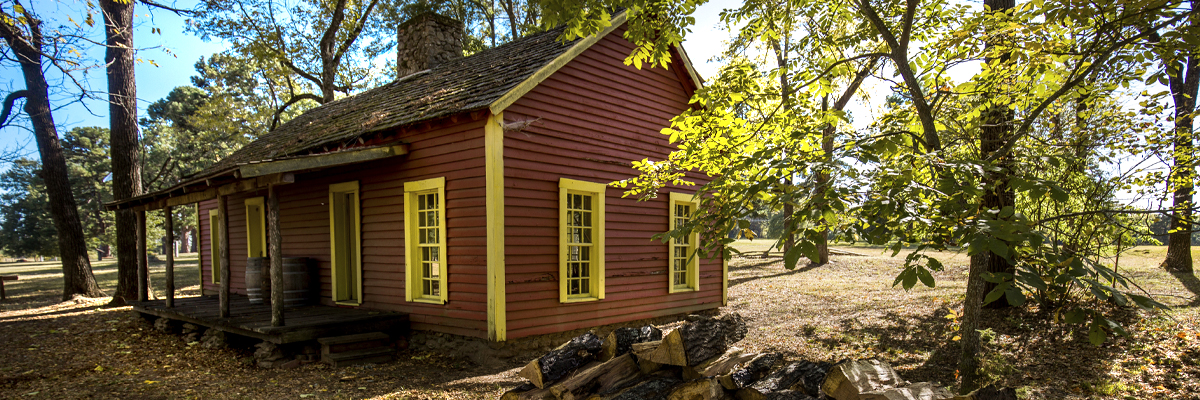
Fort Towson Historic Site
Fort Towson Historic Site
896 N 4375 Road
Fort Towson, OK 74735
580-873-2634
fttowson@history.ok.gov
Director: Calista Stephens
Historical Interpreter: David Reed
Hours
Tuesday through Saturday
9 a.m. to 4:30 p.m.
| Adults | $7 |
| Seniors (62+) | $5 |
| Students (6–18) | $4 |
| Family (up to 6 people) | $18 |
| Group Rate (10+) | $5/person |
| OHS Members, Children (under 6), Veterans and Active Military (with ID) | Free |

Visit Fort Towson Historic Site
The Fort Towson Historic Site visitor center offers engaging exhibits that delve into the fort’s rich history from its construction in 1824 and its role in the Mexican-American War and the Civil War, to the steamboats that ferried people and supplies through the region. Visitors will hear the story of nearby Doaksville, first established as a trading post that later became a thriving commercial center and capital of the Choctaw Nation.
The site brings history to life through the 1840s Encampment and Education Day each spring, Candlelight Tours in the fall and winter, and events and demonstrations throughout the year.
History of the Fort
Fort Towson was established in 1824 to quell conflicts between lawless elements, American Indian peoples, and settlers claiming the area as part of Arkansas Territory. The fort also served as an outpost on the border between the United States and Texas, which at that time was part of Mexico. Connected to the East by road, Fort Towson served as a gateway for settlers bound for Texas during the 1830s. Those passing through the area included Sam Houston, Davy Crockett, and Stephen F. Austin. When the Choctaw and Chickasaw were displaced from their lands in the southeastern United States, the fort served as a point of dispersal upon their arrival in the West. The fort was also an important staging area for US forces during the Mexican War of 1846.
Fort Towson was abandoned in 1854 when the frontier moved West. During the Civil War, however, it served for a time as headquarters for Confederate forces operating in Indian Territory. In 1865 General Stand Watie surrendered his command near the fort and became the last Confederate general to lay down arms.
When the Oklahoma Historical Society acquired the site in the 1960s, little remained to portray its former importance. Today, a visitor center, reconstructed sutler store, teamster’s cabin, and a walking trail of historic ruins chronicle the story of the fort.
Visit The Encyclopedia of Oklahoma History and Culture to find out more about Fort Towson.
Heritage Tree Packages
Oklahoma Forestry Services is now offering a Heritage Conservation Package with bur oak, Osage orange, persimmon, and black walnut seedlings. The packages contain 25 of each of the four species. To find out more, view the 2024–2025 Seedling Catalog (PDF) or visit the seedling store at ag.ok.gov/shop/.

